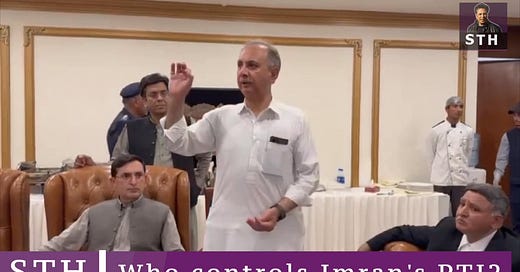Pakistan Tehreek-e-Insaf (PTI), the political party led by former Prime Minister Imran Khan, is currently grappling with complex internal divisions. As Khan prepares to address these factions from Adiala Jail, the party's structure has been revealed to comprise four main groups: loyalists who held firm during challenging times, returnees attempting to rejoin after leaving, technocrats who maintained low-profile membership, and those who quietly left and have slowly reintegrated. Overarching these groups are two influential factions aligned with Bushra Bibi, Khan's wife, and Imran Khan's sisters, respectively.
The Bushra Bibi faction has gained particular prominence due to its international connections and lobbying efforts. Key figures like Zulfi Bukhari, supported by funding from notable business personalities, have been driving a campaign for Khan's release and critiquing the current Pakistani government. This international dimension adds another layer of complexity to the party's internal dynamics.
While Imran Khan aims to reconcile these factions and present a united front, the task is proving challenging. The depth of these divisions, coupled with the interplay of personal, political, and international interests, complicates the situation. Khan's current incarceration further limits his ability to directly manage these internal conflicts. As PTI navigates these challenges, its capacity to present a cohesive front will be crucial for its political future, with the coming days set to reveal the effectiveness of Khan's mediation efforts.











Share this post